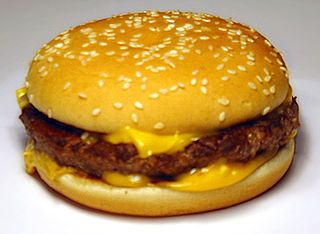Like Big Energy, Big Food Needs to Shoulder Responsibility for Its Effects on Society
Frequent commenter Frank Eggers writes in response to my recent piece in which I railed on the food industry. I suggested that Big Food – or Big Anything – needs to shoulder some responsibility for the effects that its actions create on our civilization. Frank writes:
Good food is readily available; people do not need to buy junk food. If people stopped buying junk food, the manufacturers would stop making it.
Thanks for your viewpoints, Frank. I’m anything but an expert on this topic, but I don’t believe the situation is quite that cut and dried. Here are a couple of things you may want to consider:
1) There are, in fact, “food deserts,” in which good nutrition is literally unavailable, even to those who know what it is, and desperately want it as a core ingredient in raising a healthy family. Too often, the food industry sees only increased cost and risk in shipping and selling into certain inner-city regions.
2) Many people don’t know as much as they should about the nutritional issues surrounding a diet of Big Macs and super-sized French fries. Not to pick on McDonalds, but some people wrongly assume that a company with $27 billion in annual revenues and $5.5 billion in profits, one that supports golf tournaments and numerous charities, would not sell them a product that is calculated to ruin their health.
But the people described above are dead wrong. In fact, the McDonalds, Pepsicos and Frito Lays of the world bait their prey with an ever-increasingly enticing combination of fat, salt, and sugar. The popularity of their products isn’t an accident; it’s the result of careful and extremely scientific analysis of human physiology. The industry may say they want customers, but what they really want (and cultivate with a stunning level of precision) is addicts.
The result of this is an incalculable level of human misery, and enormous cost to the healthcare networks, where entire populations of kids grow up with obesity, diabetes, heart disease, and innumerable other issues that put ever-growing strain on our medical system.
All this ignores the destruction to the ecosystem associated with growing the meat. In any case, meanwhile, McDonalds skates off scot-free, raking in its $5.5 billion, and successfully passing the costs elsewhere into our society. To paraphrase their slogan, “They’re LOVIN’ it!”


The horrors of junk food should be put into juxtaposition with the “factory farm” society that we would be creating if we outlawed everything that is bad for us.
On a modern dairy farm the cows are fed a scientifically determined diet that maximizes milk production. They are housed in filtered air conditioned hotels that are kept at an optimum temperature. Health care is provided by highly trained technicians and veteranarians. It makes Obamacare look so primative.
The cows are content. The wild instincts of native cattle have been bred out of the herd. Each cow knows its own stanchion and makes the trek from milk parlor to exercise pen 2 or 3 times a day. Each cow has an I.D. tag attached to its ear with bar code information that is available to their manager, the herdsman. There is no privacy. Euthanasia is performed on all defective cattle.
Your idea of protecting us from ourselves is just the beginning of our march to uniformity and health as determined by the rising technocratic social dictatorship.
Hopefully our citizenry is still capable of revolt.
I posited years ago (before the Internet was popular) that soft drink manufacturers and the fast food industry should subsidize healthy food and drink so that it would offset the damage done by consuming their products. The fact is that part of the reason for obesity is that junk food, in all of it’s forms, is generally cheaper and easier to obtain than their healthy counterparts.
In America the situation is vastly worse than many Americans realise.
There is a British chef called Jamie Olliver who successfully campaigned for the introduction of legally binding food quality standards in school canteens in the UK. These standards resulted in a huge improvement in the supply of healthy nutritionally balanced food in our schools.
After his success in the UK, he attempted to carry the same message to school boards in Huntingdon West Virginia. Not only did he have huge difficulty in gaining access to any of the schools in the area, but having initially been given permission to teach about food preparation and nutrition in one school, he was then thrown out for campaigning against the unhealthy diet offered to the students, and if my recollection is correct the education department felt so threatened by his campaign that it took out a court injunction to bar him from all schools in the city, and he was threatened with arrest for attempting to continue with his campaign.
Let me get this straight: he had a successful progressive concept in sustainable living in the UK, and, of the 50 states to which to introduce it, he chose West Virginia? Most Americans would infer, from that decision alone, he was begging for failure…